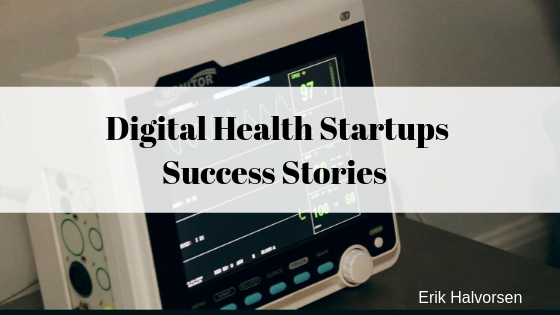The digital health sector of healthcare has exploded in the past five years with record funding. In the first half of 2019 alone, $4.2 billion has been invested in this market. The healthcare information technology sector (HCIT) focuses on delivering more cost-efficient, exceptional patient care through technology. We have already seen many of the advances in this sector with the explosion of wearables and consumer-facing health apps but there is still a large focus on enterprise-level software directed towards hospitals and large medical centers and insurers. According to Fast Company, there are four areas in digital health that received the most funding:
- Navigation of healthcare
- Telemedicine
- Patient engagement
- Primary care
These were followed closely by areas such as artificial intelligence, blockchain and the Internet of Things.
2018 was a record year for digital health startups with funding totaling around $10 billion, which is 14 times more than what it was in 2010. While there were no digital health companies to IPO in the last three years, there have been four so far in 2019.
Here are just a few of the startups that are making healthcare waves in digital health.
Blueprint — The mental health sector of healthcare is plagued with too many patients and not enough access to care providers. An increasing number of technology developers have seen this as an opportunity and it is definitely gaining attention from investors. Blueprint is one such example–this mobile app helps clinicians assess patients, track them in between appointments, provide evidence-based insights, and submit for reimbursements. What is notable about Blueprint is that it raised $1.3 million in a seed round earlier this year.
Butterfly Network – Is it a device or is it digital health? Whatever you want to call it, this portable, full-body ultrasound tool (iQ) that connects to your iPhone has put this company on the map. With an estimated price point of $2,000 for the iQ versus the $70,000 price for the bulkier hospital ultrasound devices, Butterfly hopes to make this imaging technology widely available to the world. Butterfly raised $250 million in the third quarter of 2018 in a Series D, which puts the value of the company at $1.25 billion. The founder, Jonathan Rothberg, is no stranger to entrepreneurship having previously led two companies in the biotechnology sector, Ion Torrent and Raindance Technologies. This success has made it easy for Butterfly to secure funding from investors, including the Gates Foundation and Fosun Pharma.
Livongo — Livongo is a 2019 exit success story and one that many are hoping props open the digital health IPO window. After one day of trading, the company value was at $3.4 billion. The company’s goal is to help people live healthier lives by focusing on the whole person. This is done using less-intrusive technology and a support network to change behaviors and maintain a new healthy mindset working on managing and preventing chronic diseases like diabetes that continue to increase in prevalence—costing our healthcare system billions of dollars annually.
Tempus – It’s got all the buzz words: data-driven precision medicine, machine learning, artificial intelligence, and next-gen sequencing. Former Groupon co-founder Eric Lefkofsky founded the company after his wife was diagnosed with breast cancer. He became frustrated with the lack of access to data and actionable information. By partnering with hundreds of cancer centers and academic and private medical centers, Tempus has aggregated tons of genetic and clinical information on millions of cancer patients. It then uses its proprietary algorithms to look for trends, best practices and outcomes to recommend a personalized cancer treatment plan. Tempus raised an impressive $200 million in Series F round funding in the first quarter of 2019 putting the valuation of the company around $3 billion. The new cash will help the company expand from oncology to new disease areas like cardiovascular and neurologic disorders.
While it is encouraging to see continued investment dollars flowing into the sector along with recent IPO activity—we hope to see these innovative HCIT companies continue to demonstrate their value to the healthcare system by reducing cost, increasing efficiency and improving health and wellness.
Erik Halvorsen is the Chief Business & Strategy Officer at FAR Biotech. As a result of his industry experience, Erik is an often sought-after public speaker, and he has served as an advisor to various hospitals and start-ups. He is constantly looking for new ways to improve patients’ lives while changing the broader healthcare industry for the better. He has been referred to as a “translator,” in that he has the ability to speak science with businesspeople and speak business with science people.

